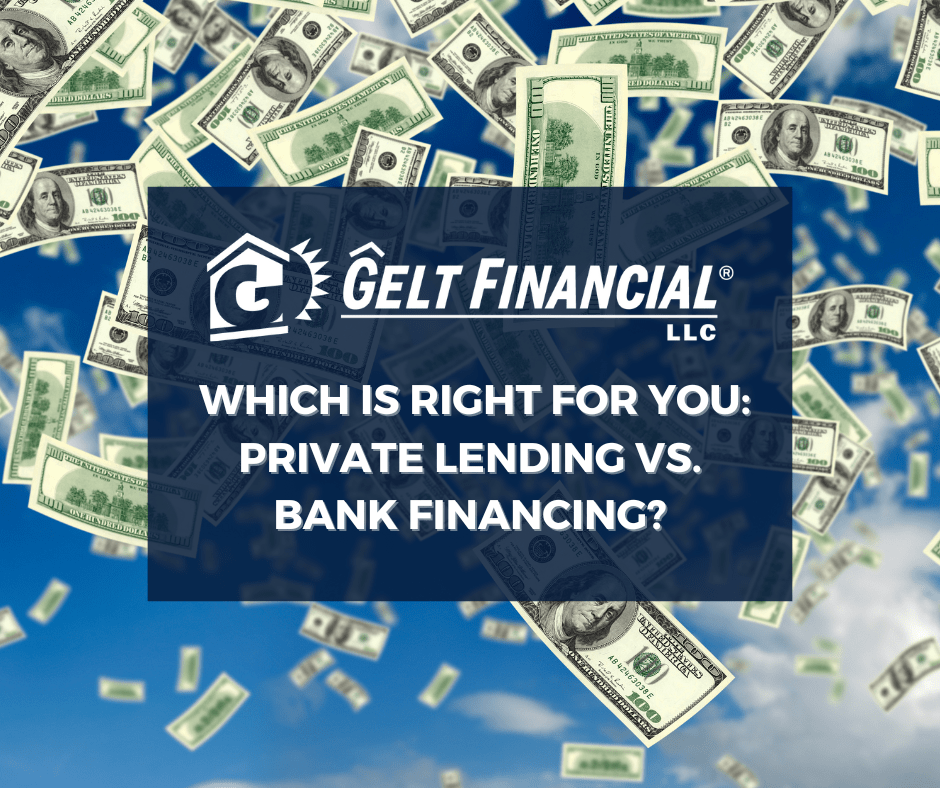Jack Miller talks about what a Break up fee is and why and how it comes into play.
“Hi, this is Jack Miller from Gelt Financial. I hope you’re having a great day today. I wanted to make this video, and I’m going to call it ‘What is a Breakup Fee?’ A breakup fee – and we get this question a lot. And why I’m making it is—why I make these videos is really to educate real estate investors, investors, and really everybody. It’s really about for the educational purposes. So, what is a breakup fee?
A breakup fee is commonly used when two sides of an agreement enter into— two sides enter into an agreement, and one side breaks up the deal. So, picture this. You go to sell a cow or whatever. You go to sell a bicycle to someone, and the other person says, ‘I don’t want to sell it anymore.’ You did all your due diligence. You prepared. You went out and borrowed the money. You got whatever it was ready, and you were excited and have an investment in the preparation. Using a cow was a crazy example. God knows where I came up with that. But let’s say you want to buy a building from somebody, and that building – okay, forget the cow analogy. I’m starting over.
Let’s say you want to buy a building from someone. You do your due diligence. You call an appraiser. You call a building inspector. It costs you some money. And then the person says, ‘You know what? I’m not selling. I’ve decided I’m not selling.’ So, if you had a breakup fee, for example, in your agreement of sale, you would be entitled to whatever the breakup fee said it would be. Let’s say it’s 3% of the purchase price. So, for round numbers, if you are buying it for $100,000, you would be entitled to a $3,000 breakup fee. So, what it does is it really compensates the party who is willing to go through with the transaction for their loss of expenses, their loss of time, their loss of energy, their loss of resources from the other party who is backing out of the transaction.
Breakup fees are usually commonly done in larger commercial transactions. You hear all the time when one public company goes to buy another public company, and the deal falls apart. The one public company gets a huge breakup fee from the other one, and in some cases, it’s in the hundreds of millions of dollars. And actually, in the example I gave, there’s another term for it. It’s called specific performance, which really obligates someone to perform on the clause. But really, I’m making the video in the context of a real estate deal and real estate financing.
Commonly, people will apply for a mortgage, and let’s say I’m just going to use a round number. It’s a $100,000 mortgage, and they don’t close on the mortgage. Maybe they went to somebody else and got a cheaper rate. So, imagine the lender has to do all of the preparation, has to sit with that $100,000, has to have the money ready at closing. And suppose 2 seconds before closing, the borrower would show up with two other mortgage packages and would negotiate in advance, or one was a cheaper rate or whatever it is.
So, a breakup fee effectively compensates the one party. If the other party does not close a transaction, why is it done? It’s done as I said before because the other party has put in a lot of time and effort and resources, and it’s cost them money to do a deal. So, the breakup fee sticks together.
Now, I would caution you that the word ‘breakup fee’ is a big word. So, if you’re doing a deal and it has a breakup fee – and as a disclosure, some of our deals have breakup fees – you can hone in on the wording of the breakup fee and make sure it’s only applicable in certain cases. For example, only applicable if you go with another lender. If it’s a purchase and the seller backs out, you don’t owe a breakup fee. So, hone in on the language. And if you’ve watched my videos before, I always tell people to be very specific with the language – hone in on it. Every word means something in the law. So, hone in on the language if your lender or any party wants to charge you a breakup fee and try to make it as palatable as possible.
But that’s why the breakup fee is there. And that’s the purpose of the video. I’m droning on a little bit too much. It’s to compensate for one party who’s not closing a transaction after they’ve expended a lot of time and energy and sat on money for it. Anyway, if you like the video, hit the like button. If you have any comments, leave the comments; we’ll answer your questions. And like the channel, you’ll be notified of more videos. And most importantly, have a fantastic day. And remember, “When your Bank says no, we say yes” at Gelt Financial.”
Category: Education
Tag: breakup fee
























